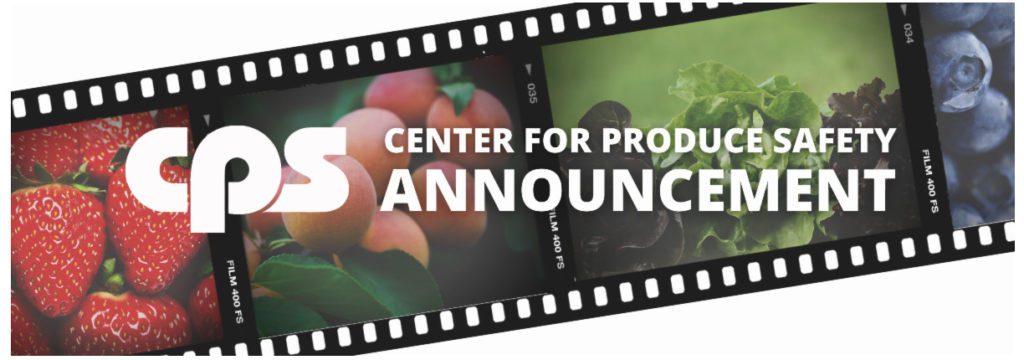Oct 11, 2022CPS funds 14 new research projects
To help answer the fresh produce industry’s most urgent food safety questions, the Center for Produce Safety (CPS) is funding 14 research projects.
Valued at $3.9 million, the projects are designed to answer industry questions about leafy greens production in controlled (indoor) environments, evaluating and mitigating risk from Listeria monocytogenes and Salmonella, and Cyclospora detection.
From avocados to leafy greens to tree fruit, researchers’ proposals were vetted by industry experts on the CPS Technical Committee and other expert volunteers, ensuring the resulting science best meets industry needs, according to a news release.
A complete list of these projects is found here, and includes links to researchers’ project abstracts. In addition to avocados and leafy greens, the research also includes studies on berries, peaches, pears, water treatment and analytical devices.
The projects include:
- Microbiological risk assessment using QMRA in preharvest agriculture water treatment systems for leafy greens at the University of Arizona;
- Microbial risks during indoor leafy green production: Current knowledge and future research needs at the University of Arkansas; and
- Optimizing methods for the detection and quantification of infectious human norovirus from fresh berries using human intestinal enteroids at the University of Georgia.
“These timely new research projects were made possible by the generosity of industry contributors to CPS’s 2020 Campaign for Research, and grants from state Specialty Crop Block Grant Programs in California, Florida, Texas and Washington, all of whom are committed to enhancing fresh produce food safety,” Joe Pezzini, chair of CPS’s volunteer Board of Directors and senior director of ag operations for Taylor Farms, said in the release. “Without their support, CPS couldn’t succeed in our mission to fund science, find solutions and fuel change in produce safety.”
One of the fourteen projects has already started with the remaining projects set to begin in November and in January. All are slated to conclude within two years. Findings will be reported to the industry by researchers at CPS’s annual research symposium as well as through emails and on CPS’ website.
The research is supported by funds from CPS’s campaign contributors and the state Specialty Crop Block Grant programs.















